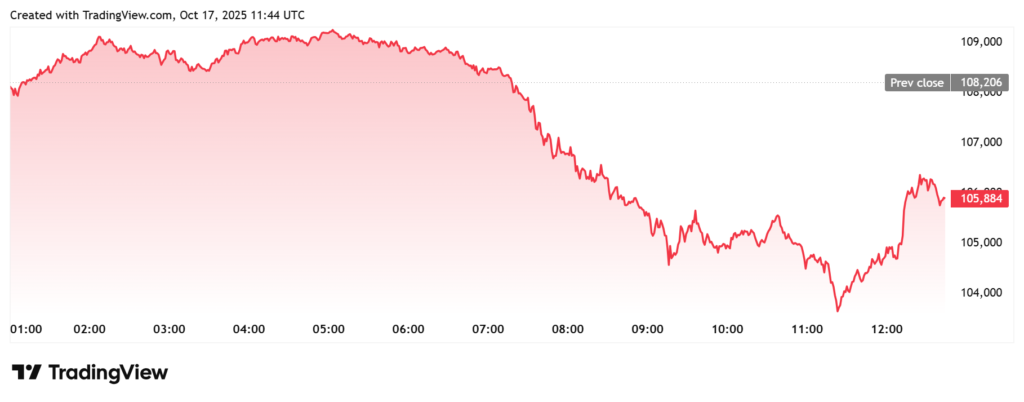Trump Backtracks on China Tariffs and Its Impact on the Crypto Market
In a surprising turn of events, U.S. President Donald Trump announced that the previously imposed 100% tariffs on China will not remain in effect. This statement came just a week after he introduced those tariffs, which significantly rattled not only the trade relations between the two nations but also shook the financial markets, particularly the cryptocurrency sector. This article explores how Trump’s sudden reversal on tariffs coincided with a crash in the crypto market and the factors that contributed to the ongoing decline.
Trump’s Quick Change of Heart
During a recent interview with FOX Business, Trump emphatically stated that the tariffs on China would not stand, which marked a notable shift from his earlier stance. His positive outlook on future relations with China—highlighting a planned meeting with President Xi Jinping in two weeks—signals a potential de-escalation of trade tensions. This reassurance from the President has provided a glimmer of hope for investors wary of escalating economic conflicts that could further destabilize markets.
The Crypto Market’s Reaction
As news of Trump’s backtracking on tariffs broke, the cryptocurrency market reacted almost immediately. Bitcoin, the leading cryptocurrency, saw a significant price fluctuation, dropping to an intraday low of $103,500 before rebounding to approximately $106,000 following Trump’s remarks. This volatility illustrates how closely intertwined the cryptocurrency market has become with global economic factors, including trade relations. The recovery in Bitcoin’s price following the statement demonstrates the market’s sensitivity to political developments.
A Week of Turmoil
The timing of Trump’s announcement is critical. Just last week, following the initial announcement of the 100% tariffs, the crypto market experienced a catastrophic liquidation event, resulting in a staggering $19 billion being wiped off its total market value. Bitcoin spiraled down to around $104,000, leading many traders and investors to question the viability of their holdings. Trump’s reversal, meanwhile, raises questions about the long-term impact of governmental decisions on cryptocurrency stability and investor confidence.
Contributing Factors to the Market Crash
However, it is essential to understand that Trump’s tariff announcement was not the sole cause of the crypto market downturn. Reports indicate that an influx of selling pressure from large holders—commonly referred to as "whales"—and Bitcoin miners significantly contributed to the crash. Over the past week, miners introduced more than 51,000 BTC onto exchanges, intensifying market reactions and facilitating further price declines. This accumulation of selling pressure indicates a complex interplay of factors affecting market conditions that go beyond political statements.
Navigating Forward
As discussions about global economics evolve, it is vital for investors to stay informed about the shifting landscape. The upcoming meeting between Trump and Xi Jinping could pave the way for negotiations that might stabilize the trade relations between the U.S. and China, alleviating some of the concern in markets, including cryptocurrencies. However, the volatility displayed in recent weeks serves as a reminder of the unpredictable nature of both financial markets and international relations.
Conclusion
In conclusion, President Trump’s recent comments about the Chinese tariffs showcase the delicate balance of international trade policies and their immediate effects on various financial assets, particularly cryptocurrencies. While Trump’s reversal offers short-term relief for the crypto market, the underlying factors—such as selling pressure from miners and market sentiment—continue to weigh heavily on cryptocurrencies. Investors must remain vigilant and informed as these dynamics evolve and adapt to the ever-changing landscape of global markets. By understanding these complexities, traders can make better-informed decisions amid ongoing uncertainties.
















